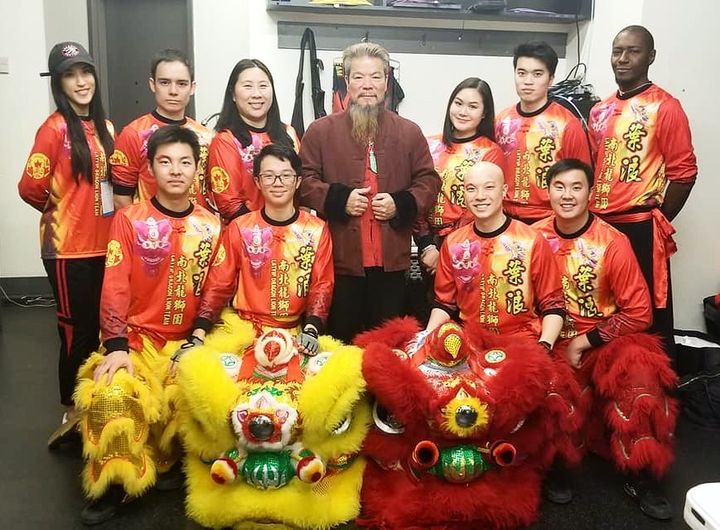The famous Chinese Dragon and Lion Dance, which is often performed in major festivals and weddings, is thought to bring fortune and good luck to its performers and spectators.
The Dragon and Lion themselves are operated by two dancers, one of whom manipulates the head while the other forms the rear of the lion — both dancing to a vigorous drum beat. Coordination and cooperation are key.
That’s also true of life, says Lat Yip, A Vietnamese-Canadian who first arrived in Canada in 1981 as a refugee escaping the Vietnam War. With the help of friends, he would eventually found the Lat Yip Dragon Lion Team, a Toronto-based Chinese Kung Fu performance team serving events all across southern Ontario.
“In the beginning, I was alone,” Yip told New Canadian Media in Mandarin, recalling his initial struggles as a newcomer in a new country.
“At that time, I realized that we’re capable of great things when we work together, and that a team is needed to succeed.”
Since arriving in Canada, Yip’s journey has taken him in many directions and taught him many skills, including oil-painting and art design.
But it all began in Toronto’s Chinatown around the mid-1980s, where he says he first saw someone performing the dance. After approaching them to inquire about it, the sifu (master) asked him if he was interested in learning more.
At the time, he was working for an advertising agency in Toronto as an art designer, which is why he hadn’t even considered becoming an apprentice, much less a teacher of the dance.
But Yip submerged himself in traditional Chinese culture, learning everything he could, from Kung Fu to gradually mastering the Dragon and Lion Dance, to eventually going from apprentice to sifu himself as he took over his own mentor’s team sometime in the early 1990s.
He says he hopes that by passing on the Dance, and through it Chinese heritage, onto newer generations — whether as spectators or performers — he can help give the world a better insight into the richness of Chinese culture.
Win-win situation
Initially, he recruited students without charging any tuition fees — a win-win situation, he says, as it not only helped him to pass on the traditional Chinese dance but also improved his team.
Yip, who has a long beard that gives him a distinguished and recognizable look, says in order to foster more connectivity among the community, most of his students have been of Chinese descent, with most of the activities taking part within the community.
Jan. 26, 2019, at Scarborough Town Centre. To celebrate the Chinese New Year, Toronto’s Mayor John Tory used a pair of ebony drum sticks to open the drumming ceremony.
For him, it’s important to get young people involved, as they help bring skills and a level of innovation to the table which he says is beyond him.
Today, young team members are operating social media channels, shooting performance videos and making their own websites. All of this, Yip says, is something of which he knows very little, so he is happy letting his younger teammates carry the torch there.
“I have always encouraged my students to innovate, because the future is in their hands,” Yip says.
Part of that innovation over the years has included removing some of the more “fierce” imagery from the performance, such as the sharp teeth from the lion’s design, Yip says, which has ultimately “made the performance better.”
The improvements have worked, as they have garnered more attention for the team, with more people from various cultural backgrounds showing interest in the traditional dance and in joining the team.
“As their sifu, what I need to do well is to inherit the most authentic form of culture, for example, the teaching of those basic skills. For the rest, we should give play to the young people,” Yip says.
Yip says his success is owed to what he calls a “one-mindedness and three intentions” life philosophy — that is, one-mindedness to do things sincerely and with focus; and three intentions to throw yourself into endeavours wholeheartedly, to maintain a relaxed attitude as you wait for the results, and to not force outcomes but allow them to come as they do.
Chudi Xu is a journalism student completing a joint program at the University of Toronto and Centennial College. Last summer, she did an internship as a journalist in China's state-controlled media, where she learned how to conduct interviews and produce news stories, as well as how to operate and manage social media accounts.





